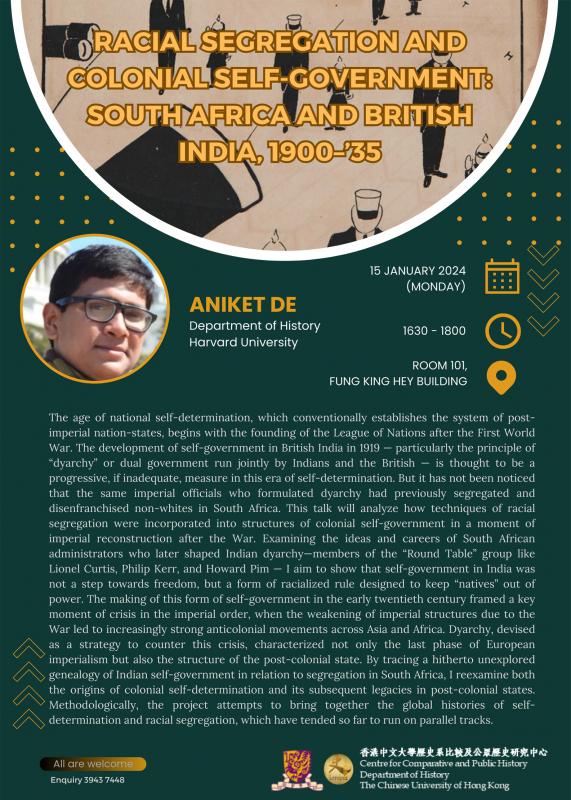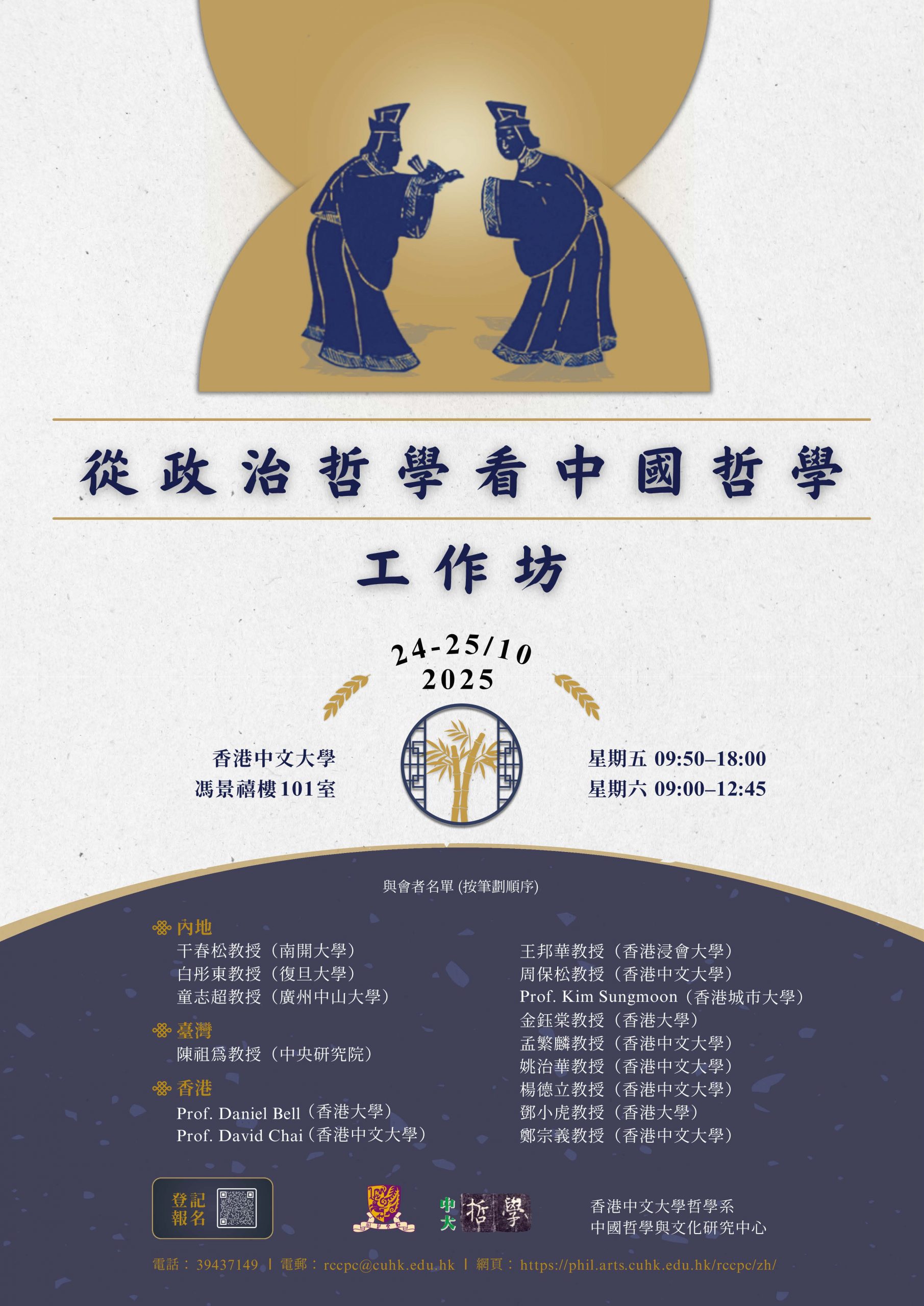
Speaker
Dr. Aniket DE
Department of History, Harvard University
The age of national self-determination, which conventionally establishes the system of post-imperial nation-states, begins with the founding of the League of Nations after the First World War. The development of self-government in British India in 1919 — particularly the principle of “dyarchy” or dual government run jointly by Indians and the British — is thought to be a progressive, if inadequate, measure in this era of self-determination. But it has not been noticed that the same imperial officials who formulated dyarchy had previously segregated and disenfranchised non-whites in South Africa. This talk will analyze how techniques of racial segregation were incorporated into structures of colonial self-government in a moment of imperial reconstruction after the War. Examining the ideas and careers of South African administrators who later shaped Indian dyarchy—members of the “Round Table” group like Lionel Curtis, Philip Kerr, and Howard Pim — I aim to show that self-government in India was not a step towards freedom, but a form of racialized rule designed to keep “natives” out of power. The making of this form of self-government in the early twentieth century framed a key moment of crisis in the imperial order, when the weakening of imperial structures due to the War led to increasingly strong anticolonial movements across Asia and Africa. Dyarchy, devised as a strategy to counter this crisis, characterized not only the last phase of European imperialism but also the structure of the post-colonial state. By tracing a hitherto unexplored genealogy of Indian self-government in relation to segregation in South Africa, I reexamine both the origins of colonial self-determination and its subsequent legacies in post-colonial states. Methodologically, the project attempts to bring together the global histories of self-determination and racial segregation, which have tended so far to run on parallel tracks.





